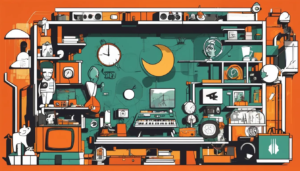
When you consider the legacy of war, what comes to mind? Is it the devastation, the loss, or the resilience of those who lived through it? War literature offers a unique perspective on this complex topic, allowing you to experience the aftermath of conflict through the eyes of those who were there. As you explore this genre, you’ll encounter powerful stories that challenge your assumptions about war and its impact on individuals and communities. But can these stories also offer a path forward, one that might lead to healing, understanding, and ultimately, peace? War and Remembrance Military History Publications.
War’s Impact on Human Psyche
In the depths of war, you can’t help but witness the devastating impact on the human psyche. The trauma and chaos that come with it can leave deep scars, affecting individuals in profound ways.
As you navigate the trenches of war, you’ll see soldiers struggling to maintain their mental health amidst the chaos. The constant exposure to violence, death, and destruction can lead to anxiety, depression, and post-traumatic stress disorder (PTSD).
You’ll notice that the effects of war on the human psyche aren’t limited to soldiers alone. Civilians, especially those caught in the crossfire, also suffer greatly.
The loss of loved ones, displacement from homes, and destruction of communities can leave them feeling lost and helpless. War also disrupts social structures, leading to a breakdown in social norms and values.
As a result, individuals may struggle to find meaning and purpose in a world torn apart by conflict. The long-term effects of war on the human psyche can be just as damaging as the physical destruction it causes.
The Power of War Literature
War literature has a unique ability to convey the complexities of human experience during conflict, allowing you to step into the shoes of those who’ve lived through it. By immersing yourself in war literature, you gain a deeper understanding of the physical, emotional, and psychological toll war takes on individuals and communities.
This genre of literature humanizes the statistics and news headlines, giving you a personal connection to the events that unfolded. Through the stories of soldiers, civilians, and refugees, you experience the fear, anxiety, and trauma that accompany war.
As you read through war literature, you begin to appreciate the resilience and courage people exhibit in the face of adversity. You see the ways in which war can both unite and divide communities, and how it can shape individual identities and worldviews.
Authors Who Lived Through War
Your understanding of war literature deepens when you consider the authors who lived through the conflicts they wrote about. These authors bring a level of authenticity to their writing that’s hard to match.
Erich Maria Remarque, for example, served in World War I and drew on those experiences to write “All Quiet on the Western Front.” This classic novel provides a gritty, realistic portrayal of war that resonates with readers to this day.
Joseph Heller, another notable example, flew 60 combat missions as a bombardier in World War II. His experiences during the war influenced his writing of “Catch-22,” a satirical novel that critiques the absurdity of war.
Similarly, Tim O’Brien, a Vietnam War veteran, drew on his own experiences to write “The Things They Carried.” This collection of short stories offers a powerful exploration of the psychological and emotional toll of war on soldiers.
Exploring the Human Cost
Delving into the human cost of war through literature can be a harrowing experience, forcing you to confront the harsh realities of conflict. As you read about the lives lost, families torn apart, and communities destroyed, you can’t help but feel a sense of empathy for those who’ve been affected.
War literature puts you in the shoes of soldiers, civilians, and refugees, allowing you to experience the fear, anxiety, and hopelessness that they felt.
You’ll encounter characters who’ve been physically and emotionally scarred by war, struggling to come to terms with their new reality. You’ll read about the grief and trauma that lingers long after the conflict has ended.
Through their stories, you’ll gain a deeper understanding of the human cost of war and the impact it has on individuals and communities. By exploring the human cost of war through literature, you’ll develop a more nuanced understanding of the complexities of conflict and the devastating consequences it has on humanity. This will leave you with a deeper appreciation for the importance of promoting peace and preventing future conflicts.
Finding Peace Through Fiction
Finding Peace Through Fiction
Although the human cost of war can be overwhelming, fiction can also serve as a powerful tool for healing and peace. You may find yourself drawn to stories that explore the aftermath of conflict, where characters navigate the complexities of rebuilding their lives. As you read these stories, you begin to see the resilience of the human spirit and the ways in which people find hope in the darkest of times.
| Author | Book Title | Themes |
|---|---|---|
| Erich Maria Remarque | All Quiet on the Western Front | Loss, Trauma, Survival |
| Toni Morrison | Sula | Identity, Community, Redemption |
| Khaled Hosseini | The Kite Runner | Guilt, Forgiveness, Atonement |
| Joe Haldeman | The Forever War | Displacement, Memory, Humanity |
| Anthony Doerr | All the Light We Cannot See | Hope, Empathy, Connection |
Through these stories, you see that peace is not just the absence of war, but a state of mind that can be cultivated even in the midst of conflict. As you reflect on the experiences of the characters, you begin to understand that finding peace is a journey that requires patience, compassion, and courage.
Conclusion
As you close the pages of war literature, you’re left with a deeper understanding of the lasting impact of conflict on individuals and communities. You’ve walked alongside soldiers, civilians, and refugees, witnessing their trauma, grief, and resilience. Through their stories, you’ve found a greater appreciation for the value of peace. The legacy of war lingers, but it’s through this literature that you can begin to heal and work towards a more peaceful future.





